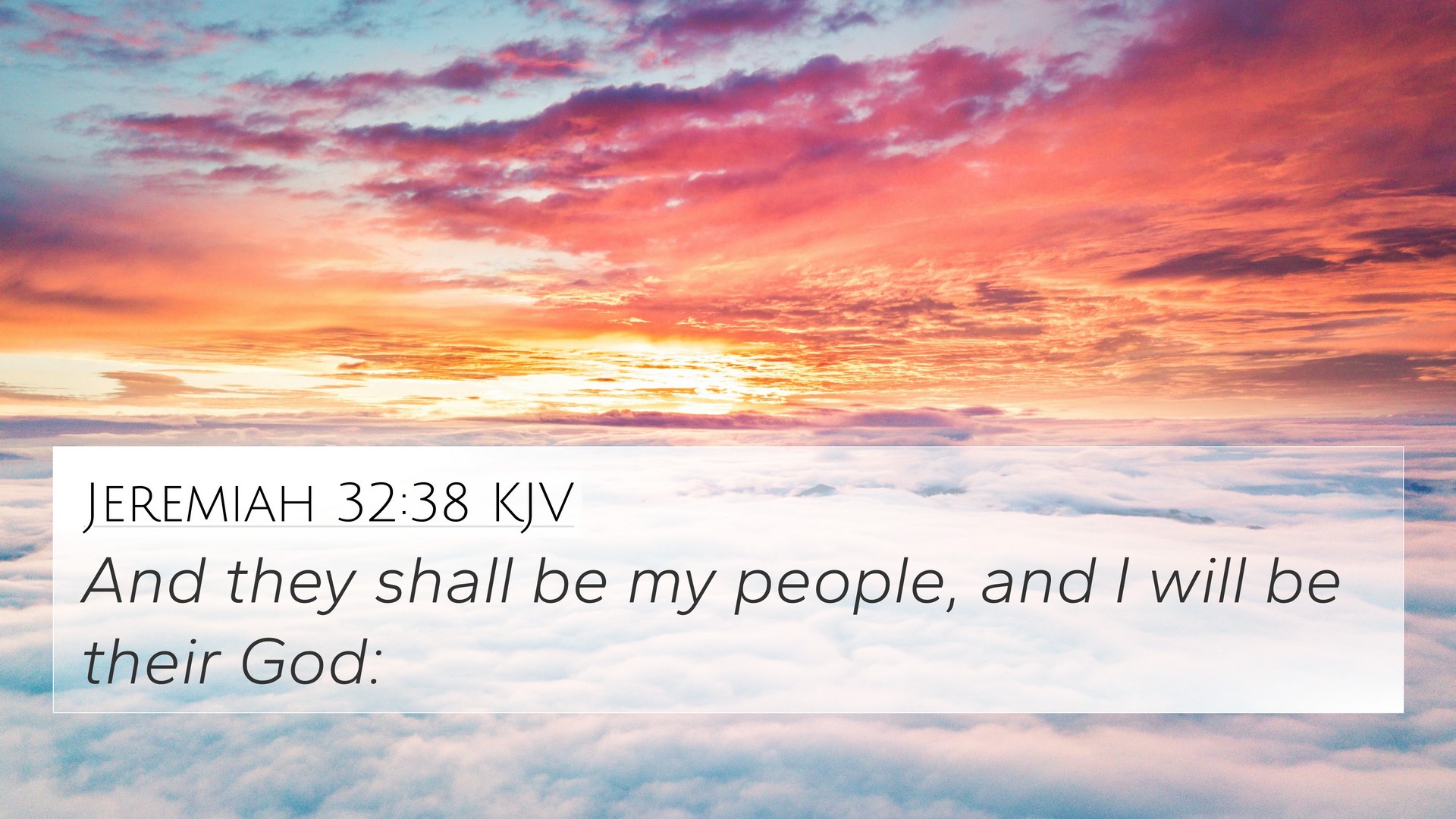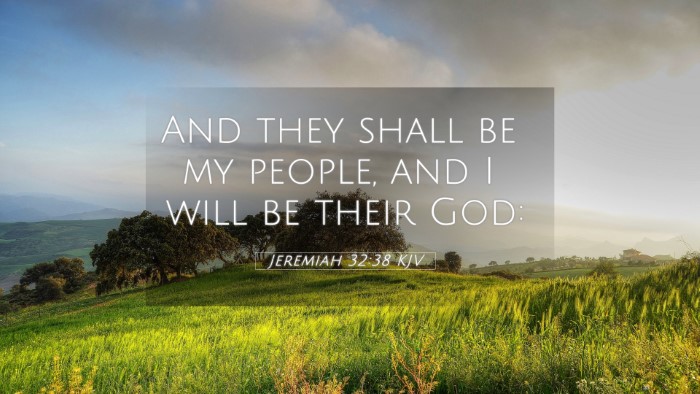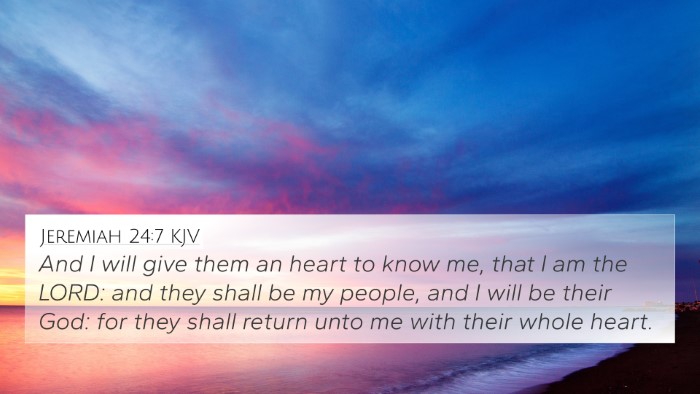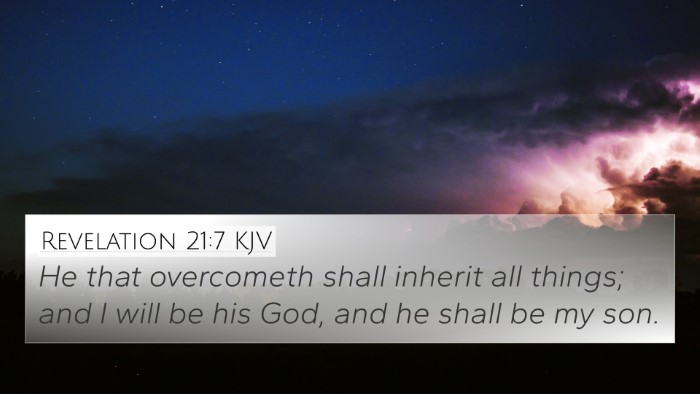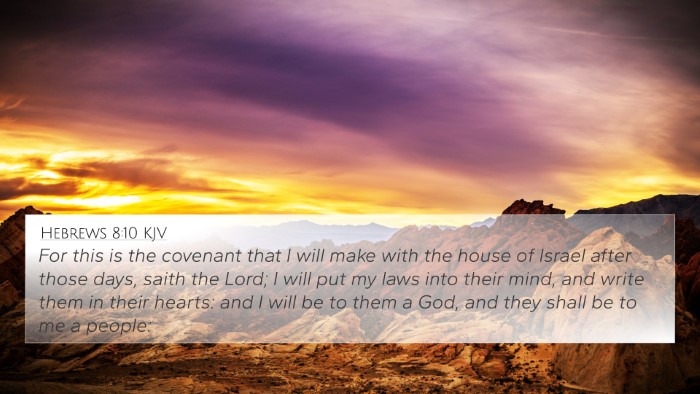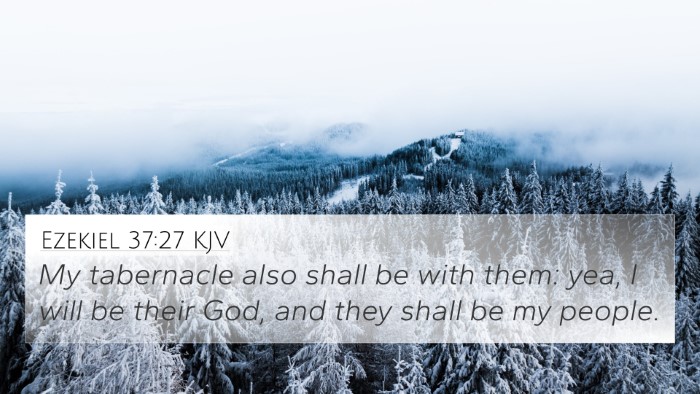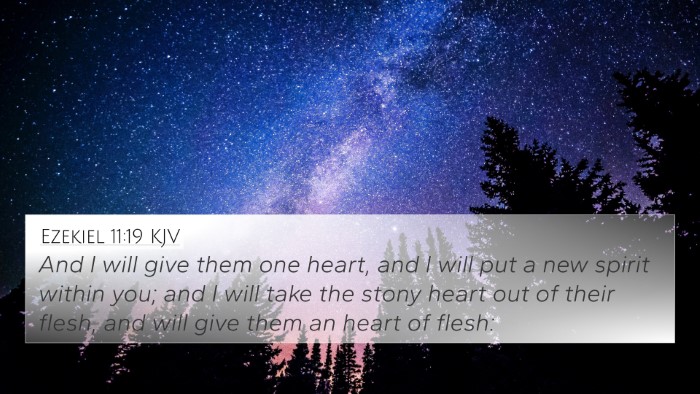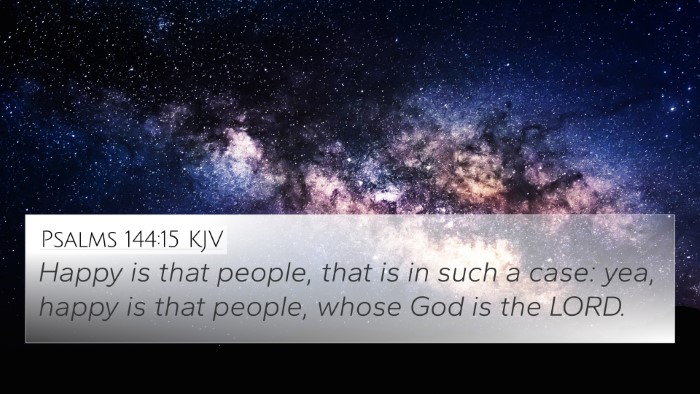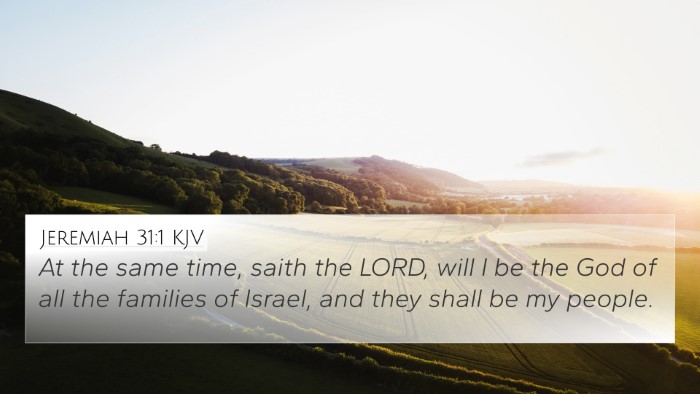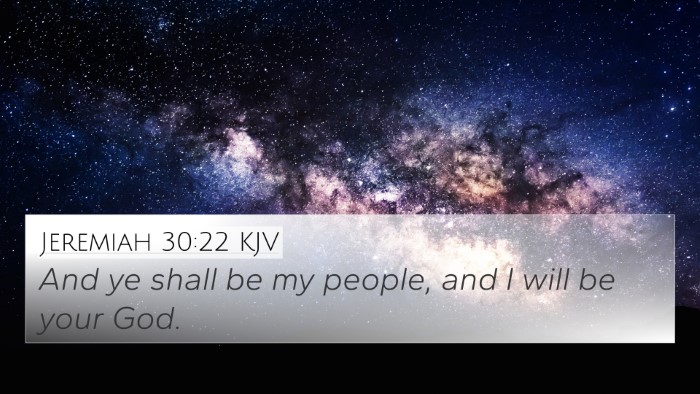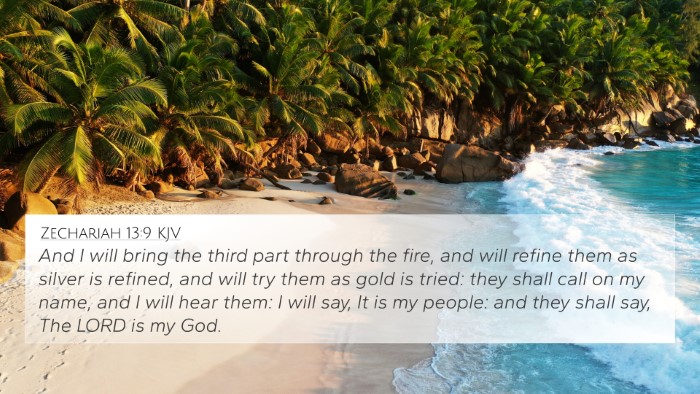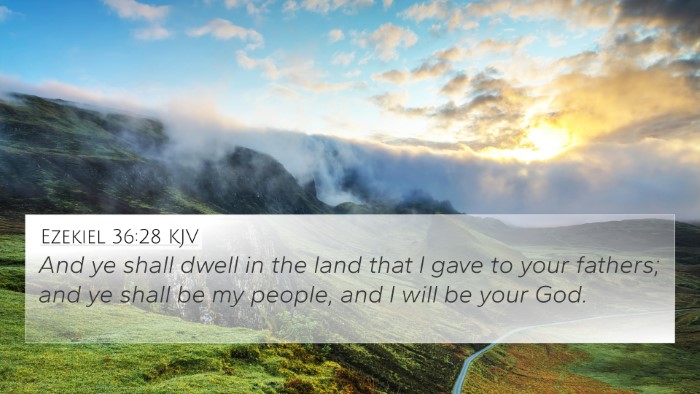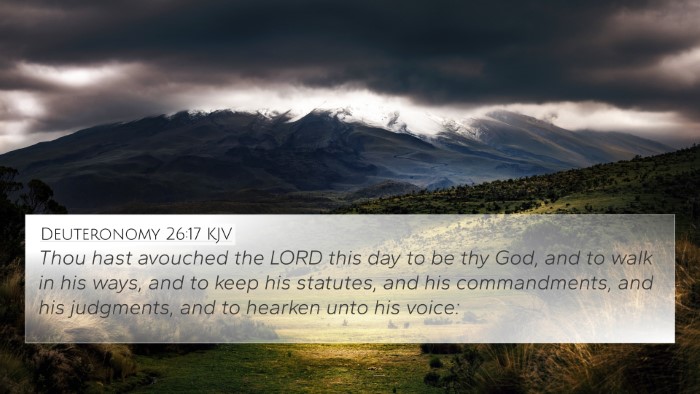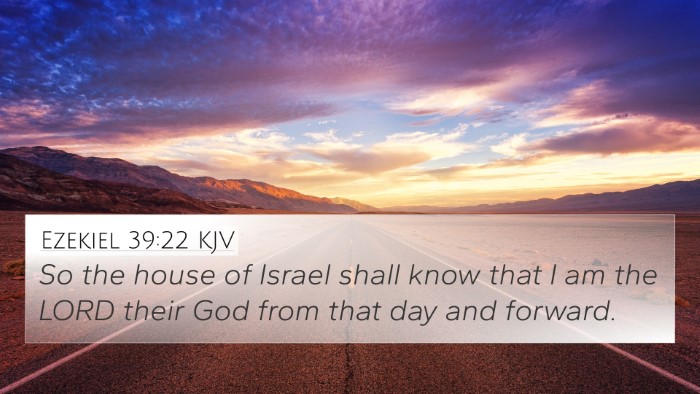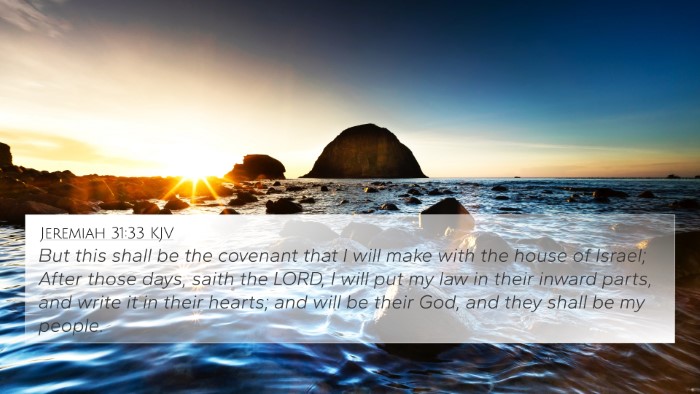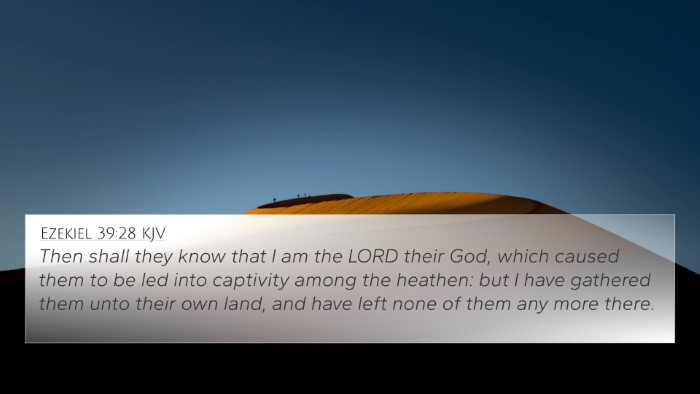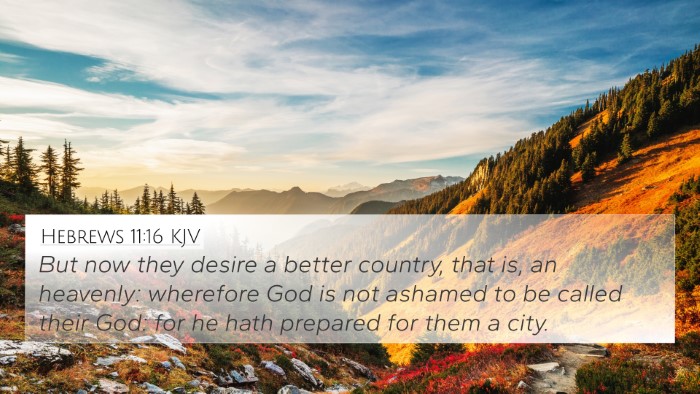Understanding Jeremiah 32:38
Jeremiah 32:38 states, "And they shall be my people, and I will be their God." This profound verse encapsulates God's promise of a future relationship with His people, emphasizing themes of identity, belonging, and divine commitment. Below is a detailed analysis woven from insights from various commentaries, including those by Matthew Henry, Albert Barnes, and Adam Clarke.
Exegesis and Thematic Overview
This verse occurs within the context of God’s assurances through the prophet Jeremiah during a time of crisis for Israel. The promise serves as both a reassurance of God’s enduring commitment and as an announcement of restoration for a nation that was about to face destruction. Themes of covenant, restoration, and God’s intimate relationship with His people are prevalent.
Divine Promise and Relationship
The phrase "they shall be my people" signifies a call to community and collective identity under God's sovereign rule. Albert Barnes emphasizes the necessity of believers' recognition of their relationship with God, highlighting how it encompasses both obligation and privilege.
Adam Clarke notes that this covenant is a restoration of Israel's status, implying that despite their failings, God’s love remains steadfast.
Historical Context and Relevance
Matthew Henry points out that this promise was particularly poignant given the historical backdrop of Israel’s rebellion and sinful practices. God promises a renewal that transcends past failures, indicating a transformative love that invites the nation back into His fold.
The historical context emphasizes a pattern of God’s faithfulness even amidst human unfaithfulness.
Comparative Analysis
This verse connects deeply with other scripture, fostering an understanding of God’s thematic promise throughout the Bible. Here are some related verses that create a tapestry of divine commitments:
- Exodus 6:7: "I will take you to me for a people, and I will be to you a God."
- 2 Corinthians 6:16: "For we are the temple of the living God; as God said, 'I will make my dwelling among them and walk among them...'
- Ezekiel 36:28: "And you shall dwell in the land that I gave to your fathers, and you shall be my people, and I will be your God."
- Hebrews 8:10: "For this is the covenant that I will make with the house of Israel after those days, declares the Lord: I will put my laws into their minds, and write them on their hearts, and I will be their God, and they shall be my people."
- Revelation 21:3: "And I heard a loud voice from the throne saying, 'Behold, the dwelling place of God is with man. He will dwell with them, and they will be his people...'
- 1 Peter 2:9: "But you are a chosen race, a royal priesthood, a holy nation, a people for his own possession..."
- Romans 9:25: "As indeed he says in Hosea, 'Those who were not my people I will call 'my people'...'
Cross-Referencing Biblical Texts
Understanding the connections between these verses reveals the thematic depth of God’s commitment to His people throughout scripture. The inter-Biblical dialogue reflected in Jeremiah 32:38 serves as a testament to God's unchangeable nature and intent for a covenantal relationship.
Each of these references not only reinforces the original promise made in Jeremiah but illustrates a wider biblical narrative that bridges both the Old and New Testaments.
Conclusion
The verse Jeremiah 32:38 resonates with believers today, encouraging a profound understanding of belonging and divine commitment. By engaging in a comparative Bible verse analysis of connected scriptures, one can grasp the continuity of God’s promises across the sacred text.
Tools for Bible cross-referencing, such as concordances and systematic study guides, enhance our ability to explore these intricate relationships.
